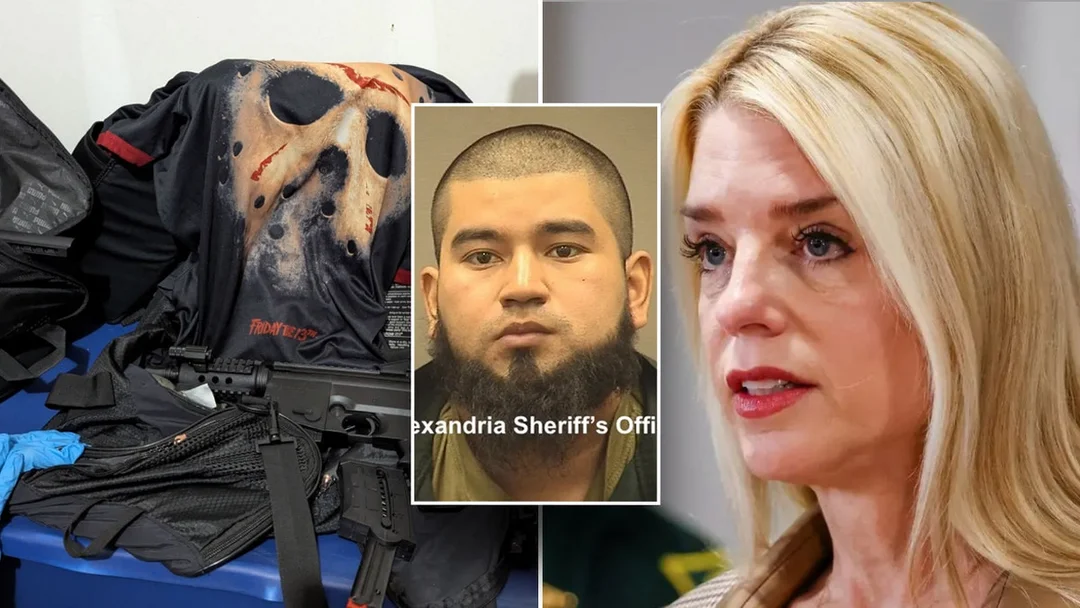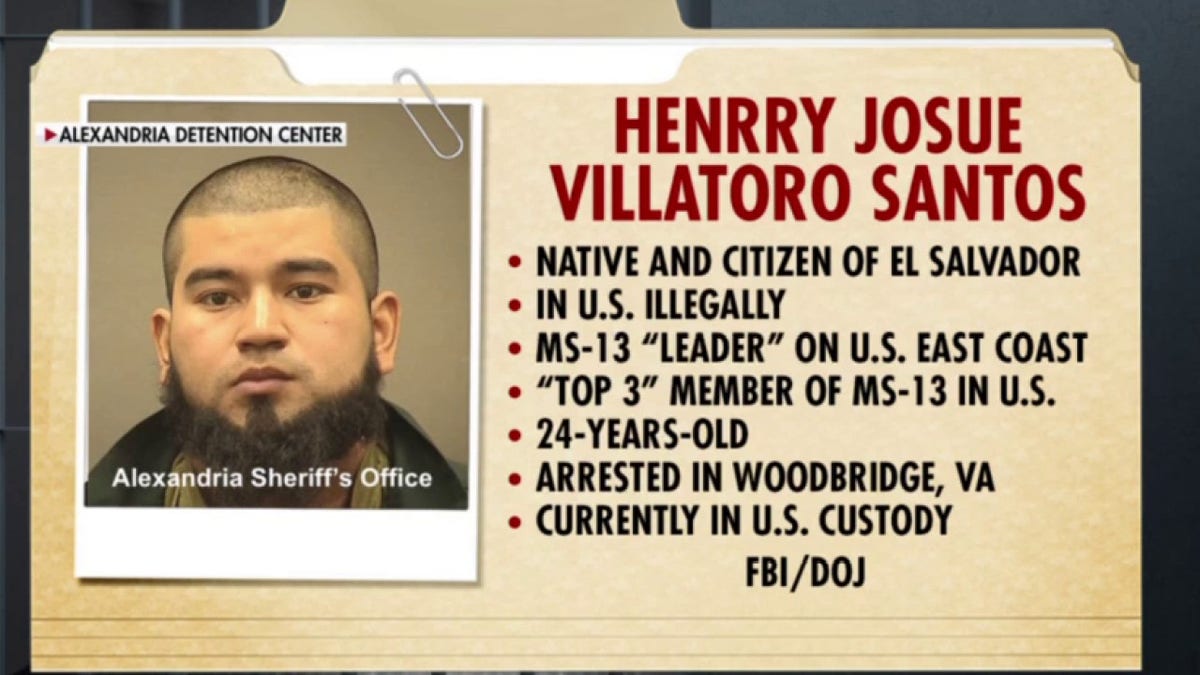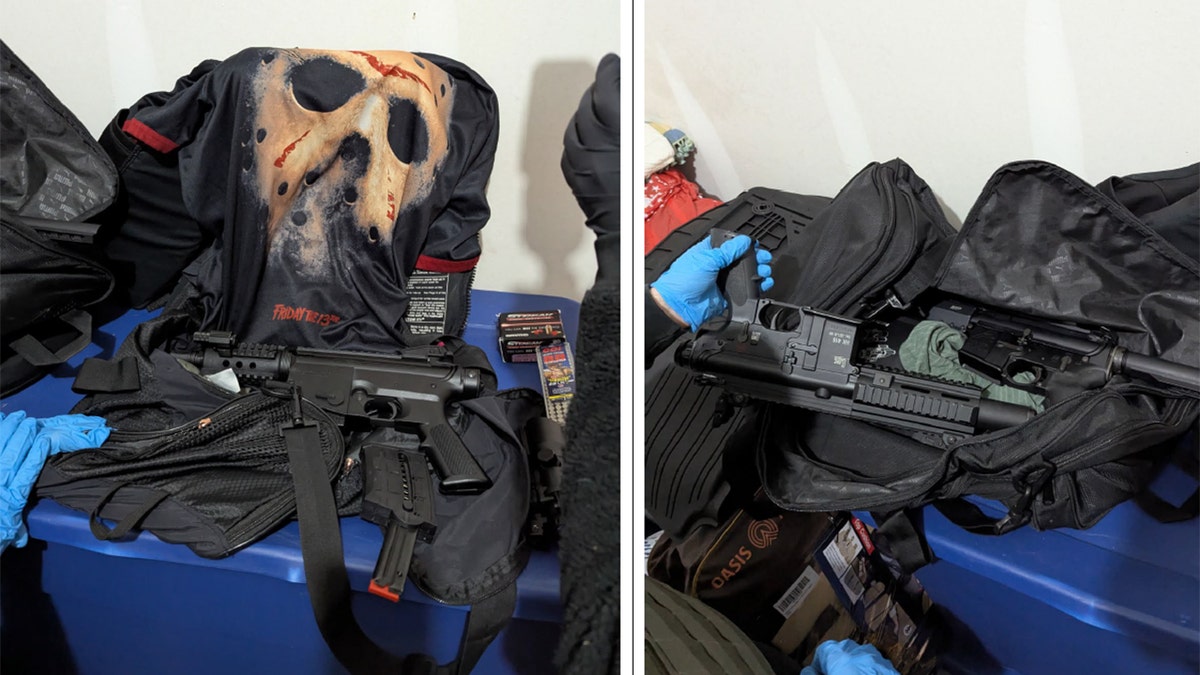
From Infamous Capture To Quiet Dismissal: The Sudden Turn In Alleged MS-13 Leader’s Case
The Justice Department’s recent dismissal of a felony charge against a Salvadoran man once hailed as one of MS-13’s top leaders on the East Coast has sparked widespread debate over the Trump administration’s gang crackdown tactics and the complicated intersection of criminal law and immigration enforcement.

Just two weeks ago, headlines blared the dramatic arrest of Henrry Josue Villatoro Santos, a 24-year-old Salvadoran national living illegally in Dale City, Virginia. Captured by FBI SWAT during a dawn raid, he was lauded as East Coast boss of MS-13. Attorney General Pam Bondi, FBI Director Kash Patel, and President Trump himself all trumpeted the operation as a major blow to transnational crime. At a March 27 presser, Bondi declared Santos “one of the worst of the worst” who “will not be living in our country much longer.”

Yet behind the fiery rhetoric, federal court filings show Santos faced a single charge: illegal firearm possession as an undocumented immigrant. Agents confiscated a Taurus 9mm pistol, three other guns, ammunition, and suppressors at his mother’s Virginia townhouse. Still, there is no mention in court of gang leadership, only “indicia” of MS-13 affiliation like graffiti inside his bedroom.
This week, however, the Justice Department quietly requested to drop all charges “without prejudice”— meaning they could refile. Prosecutors gave no explanation beyond that “the government no longer wishes to pursue the instant prosecution at this time.” According to defense filings, authorities instead intend to swiftly deport Santos on an outstanding ICE detainer.
Santos’ lawyer, Muhammad Elsayed, filed a motion seeking delay, warning his client risks being removed “without due process” to El Salvador, where “he would almost certainly be immediately detained at one of the worst prisons in the world.” He cited recent mistaken deportations— including a protected Salvadoran migrant sent to a notorious mega-prison — as evidence of a chaotic rush to deport alleged gang members at all costs.

The optics of this volte-face are striking. Less than a month ago, the administration held up Santos’ arrest as proof of tough anti-gang policy. Now, by dropping the criminal case and prioritizing deportation, critics say the Justice Department sidesteps a potentially lengthy trial that might not substantiate the sensational gang-leader label. As federal dockets show, Santos’ only local record involves past misdemeanors: marijuana possession, minor traffic violations— not violent felonies or murder charges often associated with MS-13 hierarchy.
This policy shift coincides with President Trump invoking the 1798 Alien Enemies Act to facilitate rapid expulsions of hundreds of alleged gang affiliates, especially Venezuelans and Salvadorans, to packed El Salvador prisons infamous for harsh conditions. Immigration advocates argue that bypassing judicial review risks wrongful deportations and abuses due process, while supporters insist it swiftly removes dangerous criminals.
The abrupt pivot in this high-profile case highlights broader tensions between aggressive immigration enforcement and the evidentiary standards of the U.S. criminal justice system. Was this a triumph in dismantling MS-13 leadership, or an overhyped moment sidelined in favor of fast-track deportation absent hard gang-related charges? As Santos’ future now hinges on immigration courts far from public view, questions over transparency, justice, and security linger.
What do you think about this unexpected turn? Does it reflect smart prioritization or missed opportunity for accountability? Share your thoughts in the comments below.